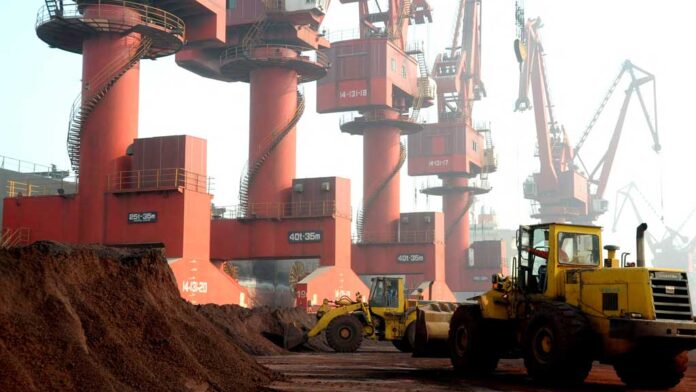China imposed export restrictions on crucial rare earth elements on Friday as part of its broad response to President Donald Trump’s tariff hikes, a move that could potentially restrict supplies of minerals vital for defense, electric vehicles, clean energy, and electronics in the US and Western markets.
China, which accounts for roughly 90 percent of the world’s refined rare earths—a group of 17 elements essential across multiple industries—supplies most of the rare earths that the United States imports. Analysts noted that Beijing’s measures extend beyond raw minerals to finished products such as permanent magnets, which are challenging to replace.
“Imposing full-blown export restrictions on high-performance rare earth magnets containing dysprosium and/or terbium will severely impact foreign industries and defense sectors, forcing a scramble to secure alternative sources—primarily in Japan and South Korea,” explained Ryan Castilloux, founder of consultancy Adamas Intelligence. “In the short term, importers are anxiously waiting to see if they will be affected. The cannons are loaded, but no one yet knows where they’re aimed.”
According to a release from the Ministry of Commerce, seven categories of medium and heavy rare earths—including samarium, gadolinium, terbium, dysprosium, lutetium, scandium, and yttrium-related items—will be added to an export control list effective April 4.
This move, which applies to exports to all countries and not solely the US, underscores China’s strategy of leveraging its dominance in the mining and processing of these critical minerals. Previously, Beijing had imposed outright bans on the export of three metals to the US and introduced export controls on many others.
David Merriman of consultancy Project Blue stressed the significance of the restrictions on heavy rare earth elements, noting that China exercises even tighter control over these materials. “Currently, there is only one heavy rare earth element (HREE)-focused operation outside of China, located in Myanmar and Laos,” he said, adding that China maintains strong ties with supply chains in those regions. He mentioned that the Serra Verde mine in Brazil is presently shipping its product to China for processing.
Mercator Institute for China Studies analyst Jacob Gunter suggested that Friday’s announcement will likely spur Western nations to accelerate efforts to develop alternative supply chains. “The more China uses this tactic, even if it’s aimed at the United States, the more European companies, governments, and others will have to consider the risk of facing similar export controls,” he stated.
Beijing announced these controls late Friday as part of a broader package that also included additional tariffs and company restrictions in retaliation for Trump’s decision to raise tariffs on most Chinese goods to 54 percent. The US Geological Survey reported that between 2019 and 2022, nearly 75 percent of the rare earths imported by the United States came from China.
While these export controls do not constitute an outright ban, they enable Beijing to restrict shipments by limiting the number of export licenses issued. For instance, after imposing export controls on antimony last September, China had shipped none to European Union countries as of March.
China continues to dominate the complex and environmentally challenging refining process for rare earths, which are abundant in the earth’s crust, and manages mining and production through a quota system that it has increasingly tightened.



